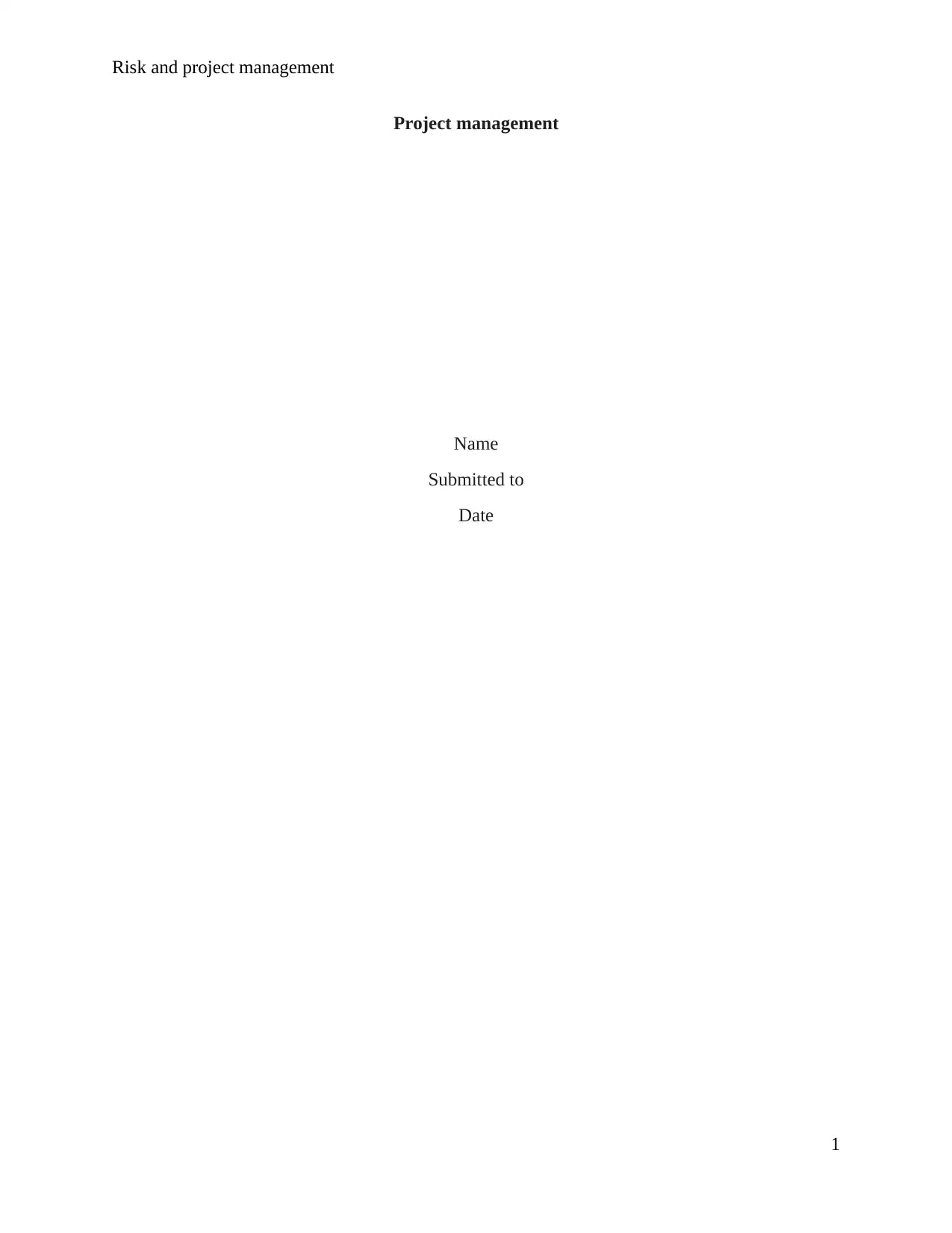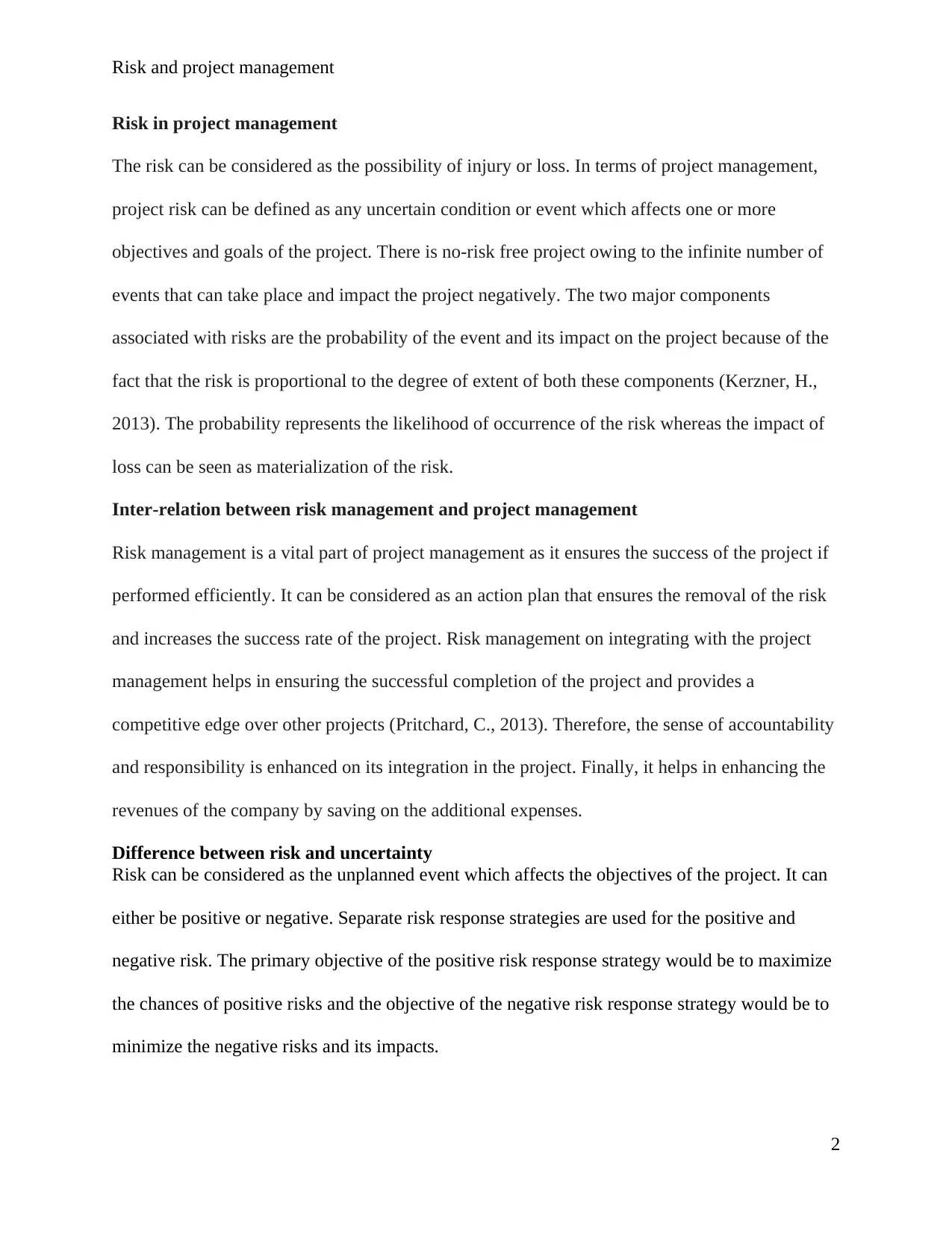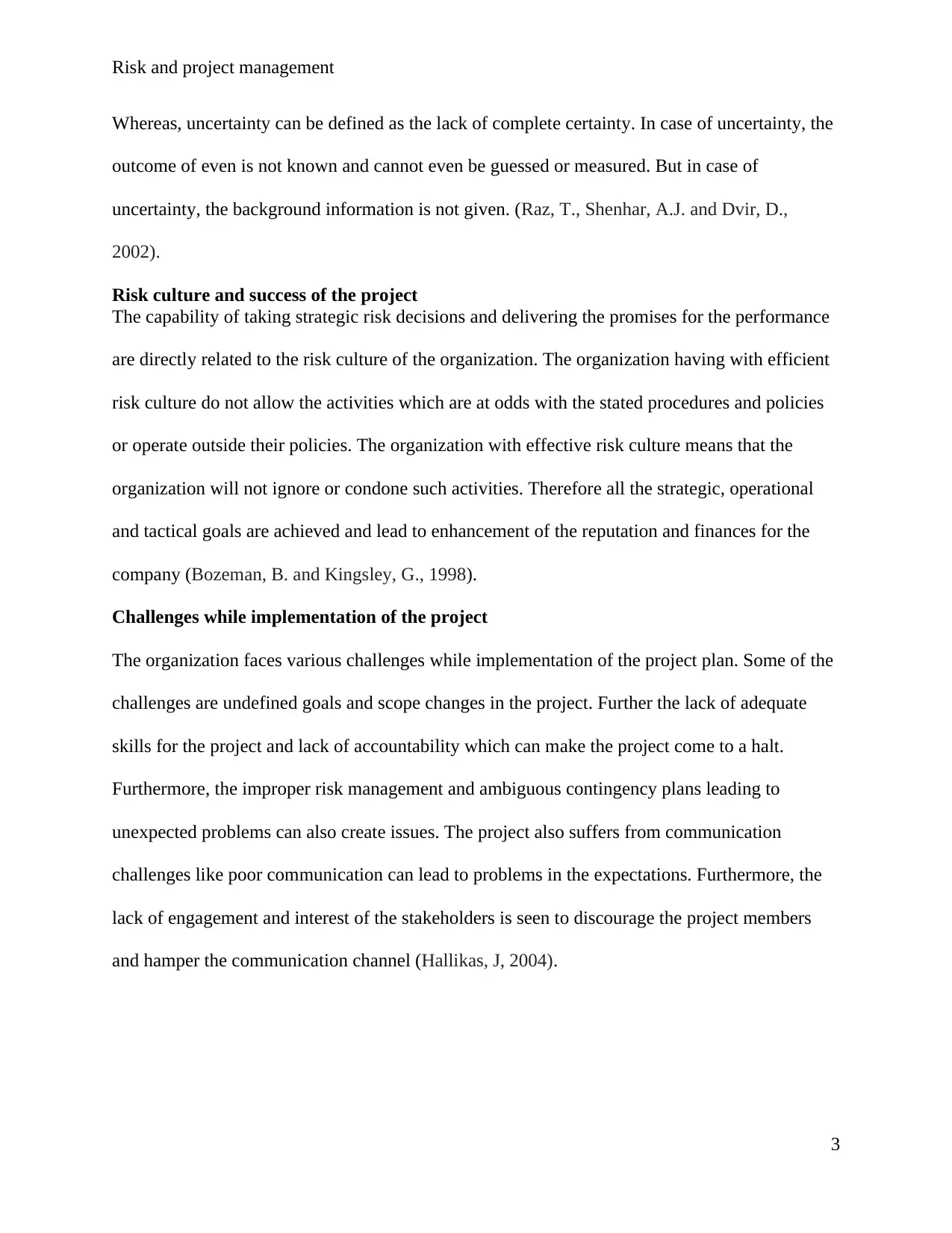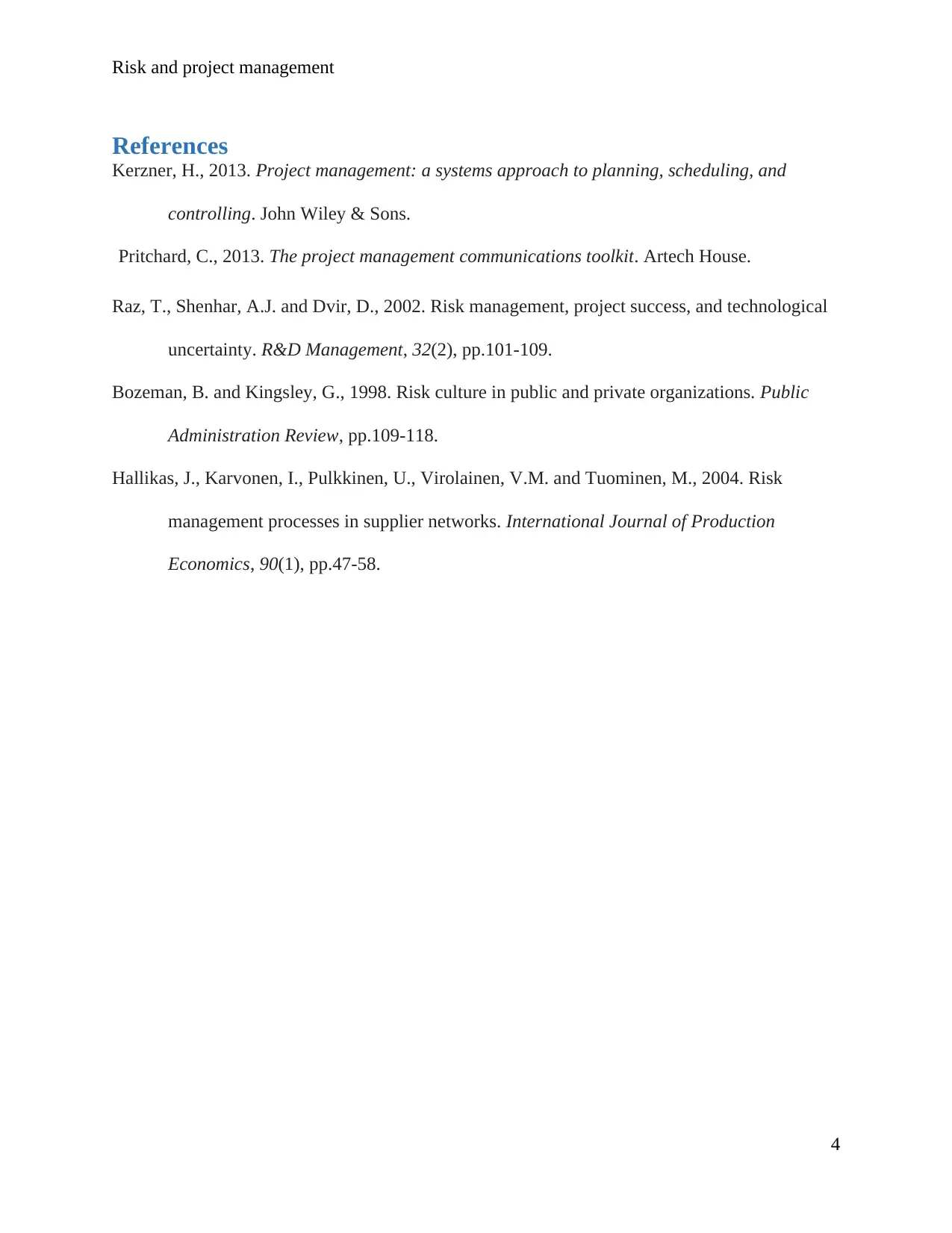Risk and Project Management: Strategies for Success Report
VerifiedAdded on 2019/09/19
|4
|793
|342
Report
AI Summary
This report provides a comprehensive overview of risk management in project management. It defines project risk, emphasizing its impact on project objectives and goals, and explains the interrelation between risk and project management, highlighting its role in ensuring project success and providing a competitive edge. The report differentiates between risk and uncertainty, elaborating on risk response strategies. It also discusses the significance of risk culture within an organization and its correlation with project success. Furthermore, the report identifies various challenges encountered during project implementation, such as undefined goals, scope changes, lack of skills, improper risk management, communication issues, and stakeholder engagement. The report concludes by referencing key academic sources to support the presented concepts.
1 out of 4











![[object Object]](/_next/static/media/star-bottom.7253800d.svg)